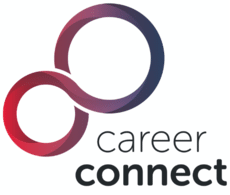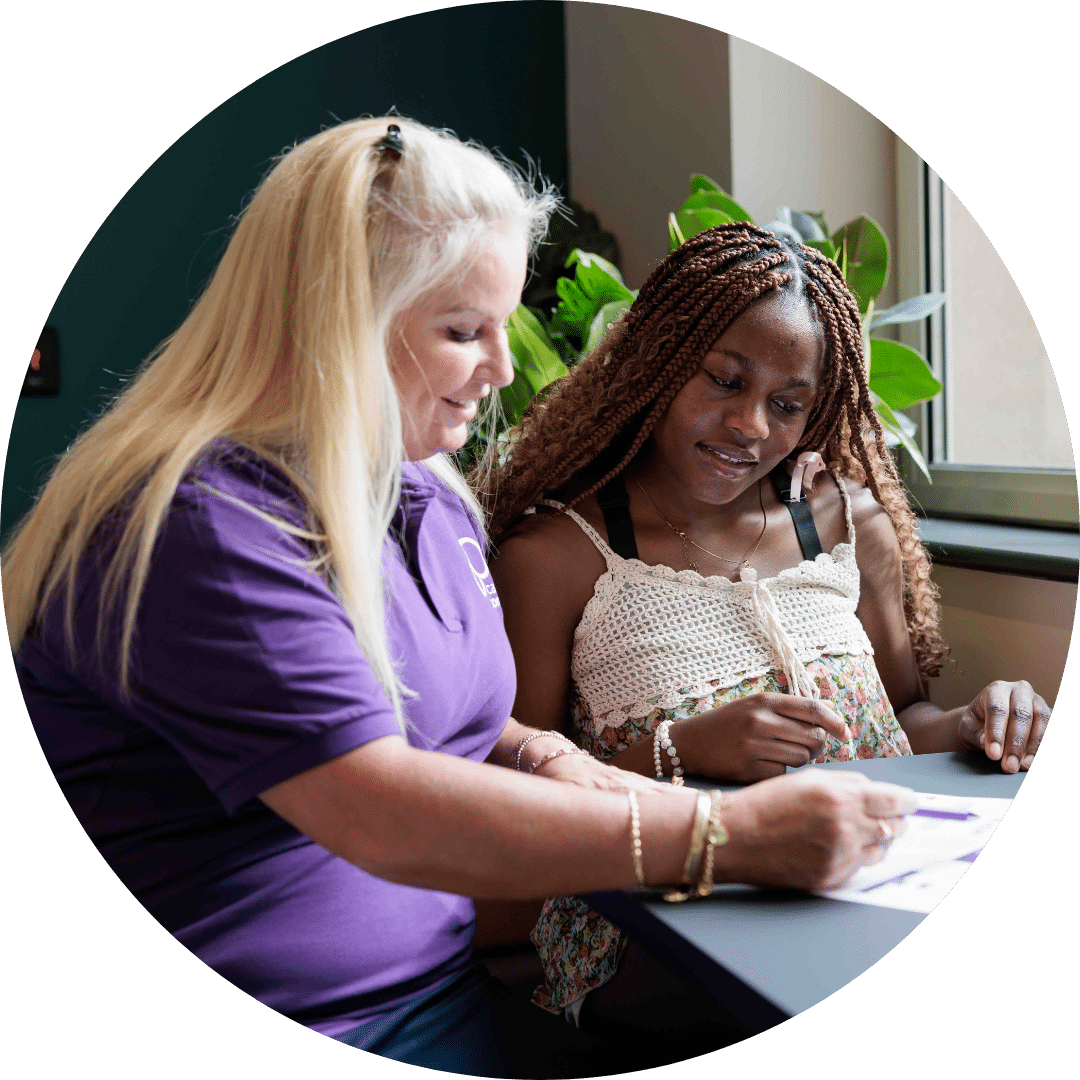Everybody’s career journey is unique. To mark both International Women’s Day and National Careers Week, we spoke to Career Connect’s first female CEO, Sheila Clark, who shares her career journey.
Follow @connectmycareer
Sheila became CEO in January 2023, after 20 years at Career Connect and our predecessor organisations.
Sheila tells us how a trip to the university Careers Office changed her life, how at her first summer job she challenged her employer’s assumptions, and why it’s important to listen to your inner voice.
When you were at school, did you have an idea of what you wanted to do?
Absolutely none. I was in a family that saw higher education as the goal, more so than the career that it would lead to.
It was about thinking about the subjects that you liked to continue to A-level, and then automatically going onto higher education.
I was a bit of a rebel at school, and didn’t really want to go to university, but there wasn’t really a great deal of impartial advice available at the time.
I did know what I enjoyed, and what I was good at in terms of subjects.
I did languages – French and German – but I added Sociology as part of my degree. I was really interested in the study of society and all of the different factors that can influence why you are where are you are in society.
What was your first job, and how did you get into it?
At university I wasn’t sure what to do when it was time to leave. I decided to speak to the university Careers Adviser, and as we got chatting, she invited me to shadow her job for a week, which I did, and I absolutely loved it!
I then chose to do a postgraduate diploma in careers guidance, which I did in Manchester. It’s a bit like doing a PGCE in teaching. You do a year postgrad course and then a year in practice.
I had two placements, and I did one in Wirral, based in the Wallasey office of the Careers Service.
I was offered a job there after the placement, which was fantastic. I know people talk about moving around different sectors and industries and that can be real positive – but equally if you stay in the same sector but you move around within that, I think that can be really positive too.
I did lots of different roles – I worked in secondary schools, special schools, grammar schools, and secondary moderns and a further education college. I then became an Assistant Manager of a local careers office, and then managed a number of offices and started to look at becoming more involved in the strategic direction of the company.
There has been huge change in the careers sector over the years, that resulted in different structures and ways of working, which brought both opportunities and challenges, but it was never dull!
What would you say are the biggest challenges you have faced in your career?
I think I have worked in very male-dominated environments and felt I’ve often had to prove myself more.
Arrive earlier. Leave later. Produce more, whilst doing the same job as a male peer, but also being a mother and the person who still does the shopping and the cooking at home.
Balancing your life and career is always a challenge. Things have changed so much for the better now with more shared tasks between parents at home and benefits like flexi time at work that helps achieve a better balance.
Having women role models is really important – the approach ‘if you can see it, you can be it’ is used a lot now, and so it should be. As a leader, I aim to be visible and hope that helps other women see that it’s possible to get where they want to be.
Based on my own experience I will tend to ask questions and challenge when I see any behaviour that doesn’t value people equally.
When I was a student, I went for a summer job in a gear wheel factory, in Digbeth in Birmingham. It involved heavy-lifting, with hob nail boots and overalls provided. They were initially reluctant to give me a job, and said it was more suitable for boys, but I challenged the HR Manager on that and said ‘you can’t say that’ so he decided to give me a chance.
They then realised they could use my translation skills when they dealt with international customers. You’ve got to challenge things like that, when people make initial judgements – I say don’t be put off by anything that others think you can’t do. That’s the approach I’ve always taken.
At Career Connect we take equality, diversity and inclusion very seriously. As a charity that helps people into employment or education, its vital that we set an example as a good employer.
Everyone should be able to be who they are, balance their life and work commitments, and have working conditions in which they can thrive. I’m incredibly proud of our recent Investors in Diversity accreditation, and our being one of the first in the Liverpool City Region to sign the Mayor’s Fair Employment Charter.
Did you know that you always wanted to be a CEO?
I don’t think I’d phrase it like that, but I think I’m very driven and I’d always want to achieve the maximum I could achieve, so in that sense the CEO role is the pinnacle of that for me.
I always wanted to lead from the front and take the kind of ideas and beliefs I’ve got, and my real passion for what we do, and combine that with strategic leadership.
The reason I’ve stayed in this sector is that I do think we make a difference. I could see it in my own career development, just how important careers advice was in terms of supporting you to find a career that you enjoy, where you are challenged and feel motivated. You spend a significant amount of time at work and away from your family, so you need to be as happy as you can with what you do.
What advice would you give to 18-year-old Sheila or any 18-year-old woman exploring her options?
Dream big, and don’t be put off by thinking, ‘oh that’s too big a challenge for me’ or ‘I can’t do all of that’.
Be ready to challenge those who question whether you can do something and be ready to prove yourself.
Don’t let anything hold you back. Keep focused and keep your dream alive.
Cut out the noise around you and listen to that inner voice.

